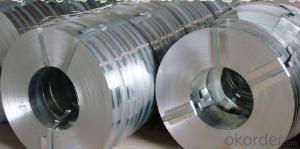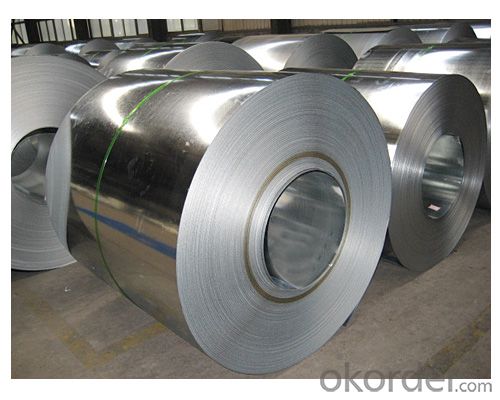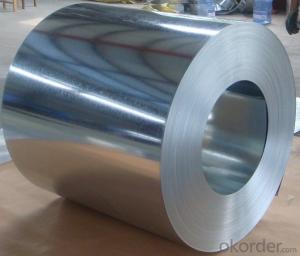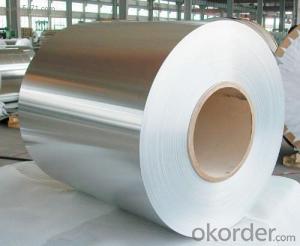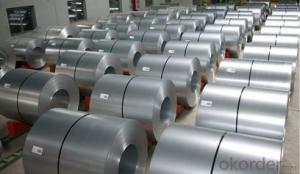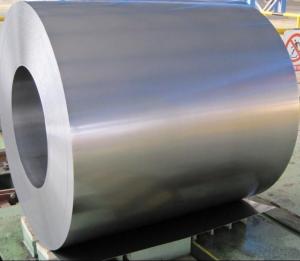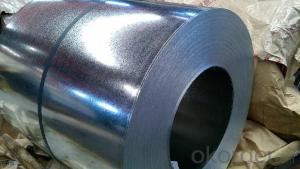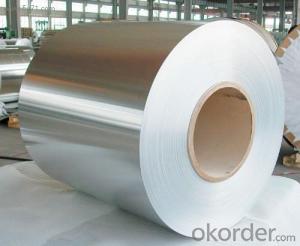Hot-dip Zinc Coating Steel Building Roof Walls--Workability, Durability
- Loading Port:
- China main port
- Payment Terms:
- TT OR LC
- Min Order Qty:
- 50 m.t.
- Supply Capability:
- 10000 m.t./month
OKorder Service Pledge
OKorder Financial Service
You Might Also Like
Hot-dip Zinc Coating Steel Building Roof Walls--Workability, Durability
1. Hot-Dip Galvanized Steel Sheet Description:
Hot-dip galvanized steel coils are available with a pure zinc coating through the hot-dip galvanizing process. It offers the economy, strength and formability of steel combined with the corrosion resistance of zinc. The hot-dip process is the process by which steel gets coated in layers of zinc to protect against rust.
2.Main Features :
• Excellent process capability
• Smooth and flat surface
• Excellent anticorrosive property
• High strength
• Good formability
3.Hot-Dip Galvanized Steel Sheet Images:
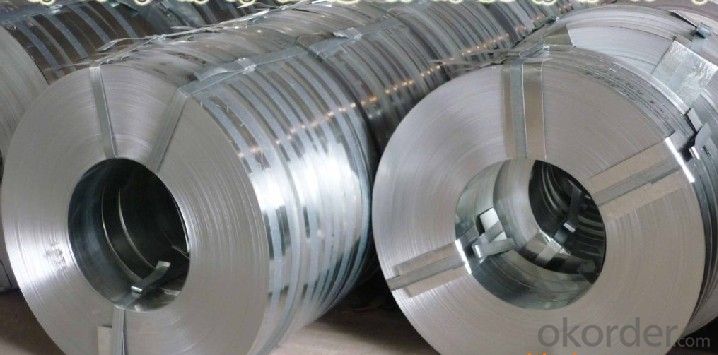
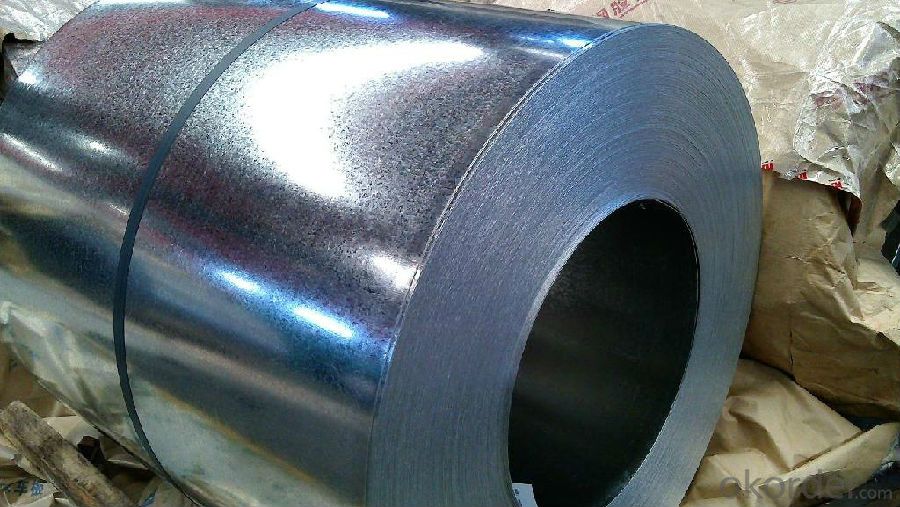
4.Hot-Dip Galvanized Steel Sheet Specification
Standard: ASTM, JIS,EN
Grade: CS, DX51D+Z,SGCC, SS 230~550,S220GD+Z~S550GD+Z, SGC340~SGC570
Thickness: 0.18mm~5mm
Width: max 2000mm
Coil weight:3-12 MT
Coil ID:508/610mm
Surface structure: zero spangle, regular spangle or minimum spangle
Surface treatment: Chromate treatment, Oiled/dry, skinpassed/non-skinpassed
Packing: Standard seaworthy export package
5.FAQ of Hot-Dip Galvanized Steel Sheet
We have organized several common questions for our clients,may help you sincerely:
1.How to guarantee the quality of the products?
We have established the international advanced quality management system,every link from raw material to final product we have strict quality test.
2. How long can we receive the product after purchase?
Usually within thirty working days after receiving buyer’s advance payment or LC. We will arrange the factory manufacturing as soon as possible. The cargo readiness usually takes 15-30 days, but the shipment will depend on the vessel situation.
- Q: I am in the US and looking for a price on wide flange steel. I need a price of one W10x30 and 20 feet long.
- The price of steel is increasing daily, so an exact answer is rough. A W10x30 is a fairly common shape and shouldn't be too hard to find. For a very rough ballpark number, say $700/ton (installed price), the piece you require should be in the range of about $250.00 or less as I assume you'll be doing the installing. Please don't take this as the gospel, however. Price varies on location, stock, and availability. Open the phone book and contact your local steel supplier. Because the piece you require is fairly short, you might get lucky and find someone who has a waste piece that length that they will give you a good deal on. --------------------------------------... I just checked the AISC web site to verify the number I quoted above and they posted an article stating that the average mill price had just increased to over $1000/ton in May. The best advice I can provide at this point is to buy the W10 now and don't wait any longer.
- Q: How are steel coils used in the manufacturing of agricultural equipment?
- Steel coils are used in the manufacturing of agricultural equipment as they provide strength, durability, and flexibility. These coils are typically formed, shaped, and welded to create various components like frames, brackets, and supports. The high strength of steel allows for the construction of heavy-duty machinery that can withstand the demanding conditions of agricultural operations. Additionally, the flexibility of steel coils allows for customization, enabling manufacturers to produce equipment that meets specific farming needs.
- Q: How can defects in steel coils be detected?
- Defects in steel coils can be detected through various non-destructive testing methods such as visual inspection, ultrasonic testing, magnetic particle inspection, eddy current testing, and radiographic testing. These techniques help identify surface cracks, internal flaws, irregularities in thickness, and other defects, ensuring the quality and integrity of the steel coils.
- Q: where can i get a thick sheet of steel ? and is steel bullet proff for example if you shoot a bullet on steel will that bullet bounce right off the steel ?
- Try the business-to-business yellow pages in your area. A local hardware store can also tell you who to contact. Or search steel plate or sheet metal on the internet to find a local supplier. No, sheet steel is not bullet proof, unless you get heavy plate. Depending on how thick it is, the plate will deform if hit by a high velocity bullet, but usually not enough to matter. Bullets have velocities from about 500 ft/sec up to roughly 3000 ft/sec, depending on the type of weapon used. I wouldn't try to use anything thinner than 3/4 inch. You'll have to experiment and see what it will actually stop. I can't guarantee it'll stop a high-velocity rifle slug. Try it and see.
- Q: What are the different types of steel coil cutting tools?
- In the market, one can find a variety of steel coil cutting tools. These tools have been specifically designed to efficiently and accurately cut steel coils. Some of the commonly used types of steel coil cutting tools include: 1. Slitting shears: These shears are widely utilized to cut steel coils into narrow strips. Equipped with multiple blades, slitting shears offer clean and precise cuts without causing any damage to the material. They are typically employed in high-volume production and are capable of handling different thicknesses of steel coils. 2. Rotary shears: Another commonly used cutting tool for steel coils is the rotary shear. These shears consist of rotating blades that shear through the material as it passes through them. Rotary shears are perfect for cutting medium to thick steel coils and are known for their high cutting speed and accuracy. 3. Guillotine shears: Guillotine shears are heavy-duty cutting tools that can handle thick steel coils. They operate by exerting a downward force to cut through the material in one clean stroke. Renowned for their power and precision, guillotine shears are suitable for cutting large volumes of steel coils. 4. Laser cutting machines: Advanced cutting tools like laser cutting machines employ a high-powered laser beam to cut through steel coils. These machines offer precise and intricate cuts with minimal heat distortion. Laser cutting machines are ideal for cutting complex shapes and patterns on steel coils. 5. Water jet cutting machines: Water jet cutting machines utilize a high-pressure stream of water mixed with abrasive particles to cut through steel coils. This method provides high accuracy and does not generate heat, making it suitable for cutting heat-sensitive materials. Water jet cutting machines can cut through various thicknesses of steel coils and produce smooth edges. Each type of steel coil cutting tool has its own advantages and is suitable for different applications. The choice of tool depends on factors such as the thickness of the steel coil, required precision, production volume, and budget.
- Q: What are the common surface finishes for steel coils?
- There are several common surface finishes for steel coils, depending on the specific requirements and applications. Some of the most common surface finishes for steel coils include: 1. Hot-dip galvanized: This is a process where the steel coil is immersed in a bath of molten zinc, coating the surface with a protective layer. Hot-dip galvanizing provides excellent corrosion resistance and is commonly used in outdoor applications. 2. Electro-galvanized: In this process, a thin layer of zinc is electroplated onto the surface of the steel coil. Electro-galvanizing provides good corrosion resistance and a smooth finish, making it suitable for various applications, including automotive parts and appliances. 3. Galvannealed: Galvannealed steel coils are coated with a zinc-iron alloy by passing them through a high-temperature annealing process. This finish offers improved paint adhesion and excellent resistance to corrosion, making it suitable for manufacturing automotive parts and construction materials. 4. Tinplate: Tinplating involves coating the steel coil with a thin layer of tin, providing excellent corrosion resistance and a bright, shiny appearance. Tinplate is commonly used for packaging materials and cans. 5. Pre-painted: Pre-painted steel coils have a layer of paint applied to the surface, providing both corrosion resistance and an aesthetically pleasing finish. This finish is often used for building materials, such as roofing and siding. 6. Cold-rolled: Cold-rolled steel coils undergo a process where they are rolled at room temperature, resulting in a smooth, clean surface. Cold-rolled coils are typically used in applications where a high-quality surface finish is required, such as automotive parts and appliances. These are just a few of the common surface finishes for steel coils. The choice of finish depends on the desired properties, such as corrosion resistance, appearance, and specific application requirements.
- Q: How are steel coils used in the production of containers?
- Steel coils are used in the production of containers as they are the primary material for manufacturing container bodies. These coils are shaped and welded into the desired container shape, providing strength and durability to the final product.
- Q: Is cold steel actually steel? Does it hurt? Why is it used in training? First one to goodly answer those questions gets 10 points.
- Cold Steel is a Ventura, California-based marketer of knives, swords and other edged weapons and tools. Cold Steel was founded in 1980 by company president, Lynn C. Thompson.[1] Its products are manufactured in various countries including Japan, Taiwan, China and India.[2] Cold Steel's products include fixed blade knives, folding knives, swords, machetes, tomahawks, kukris, blowguns, walking sticks, and other martial arts related items.[1] Many of their knives are also made using VG-1 Stainless Steel,4116 Krupp Stainless Steel, 1055 Carbon Steel, SK-5 High Carbon Steel, and AUS 8A Stainless Steel.[3]
- Q: I love the design! It looks great, is safe, and you can see through it just fine on camera. Do you like it?BQ: Old Blue WWF Steel Cage or the newer fence type steel cage?
- yes it is better now
- Q: When maintaining a japanese knife: Is a honing steel still necessary if I have a fine 3000/8000 grit whetstone?which do you prefer?
- A steel is to clean off an edge and remove any bends on the bevel, it is not directly for sharpening as it removes no material from the knife (or should not). A whetstone, however fine, does remove material. A steel to maintain an edge, a stone to restore an edge. They are different items for different purposes.
Send your message to us
Hot-dip Zinc Coating Steel Building Roof Walls--Workability, Durability
- Loading Port:
- China main port
- Payment Terms:
- TT OR LC
- Min Order Qty:
- 50 m.t.
- Supply Capability:
- 10000 m.t./month
OKorder Service Pledge
OKorder Financial Service
Similar products
Hot products
Hot Searches
Related keywords
